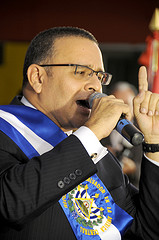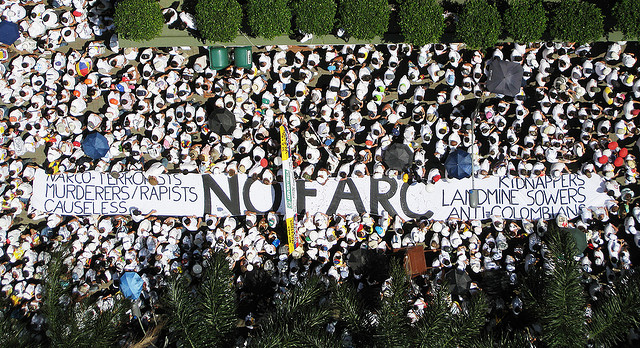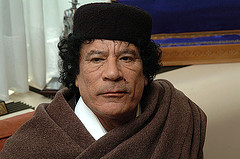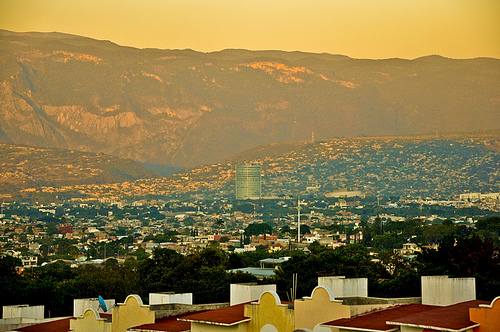
Guatemala, Latin America: Week in Review
Guatemala Accuses Zetas Drug Cartel Of Carrying Out Petén Massacre
May 17, 2011 By Staff
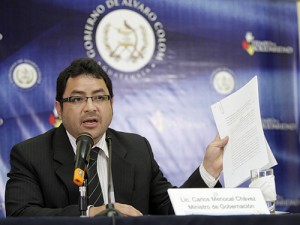
Guatemalan Interior Minister Carlos Menocal.
Today in Latin America
Top Story — Guatemalan officials on Monday attributed Saturday’s massacre of 29 people in the northern province of Petén to the Zetas, a Mexican drug cartel also thought to be responsible for the mass grave of 183 people in the Mexican state of Tamaulipas found last month.
However, as details emerge on the motives behind the violent murders of a group of day laborers at Los Cocos estate, the facts remain uncertain. Police have also speculated that the murders may have been in retaliation for the Saturday death of Haroldo Waldemar León of the Leones gang, which operates in Petén. It is still not known why the laborers were targeted.
“We have established that the victims were farmers with no links to drug traffic or organized crime,” Guatemalan Interior Minister Carlos Menocal told Guatemalan radio.
Luis Armando Garcia, 23, who survived the massacre by lying in a field and pretending to be dead, said a large group of men armed with machetes promised they would return. He said that two children were among those killed.
The killers reportedly arrived in pickup trucks and Hummers, numbering between 30 and 40 people, and made camp on the outskirts of the estate just before the murders. A message written in blood at the ranch said the killers were looking for ranch owner Otto Salguero, last seen on Sunday attending the funeral of his murdered niece. Salguero is now under investigation, according to Menocal.
Guatemalan President Alvaro Colom flew to Petén on Monday to condemn the killings. Last December, the president declared a two-month state of siege in the province of Alta Verapaz, arguing that it was necessary to combat drug cartels in the area. The declaration raised concerns that the police could abuse their added power and might be linked to the drug gangs themselves.
Last Friday, private security officers reportedly fired on a group of farmers from helicopters in Alta Verapaz. The farmers had been driven from their land by national security forces and private security guards on March 15 and were looking for for food.
Headlines from the Western Hemisphere
North America
- Many U.S. businesses are reluctant to go ahead with new investment plans in Mexico due to the country’s on-going drug war.
- Rock star Carlos Santana called Georgia’s new immigration bill “anti-American” while being honored at a baseball game Sunday in Atlanta.
Caribbean
- Secretary-General Ban Ki-moon announced Monday that Mariano Fernández will replace Edmond Mulet as head of the seven-year-old international peacekeeping force in Haiti at the end of May.
- Cuba’s internal opposition is seeking “pretexts,” such as the recent death of dissident Juan Wilfredo Soto Garcáa, to spur conflict between the island and the United States, the newspaper of the ruling Communist Party said Monday.
- Puerto Rican Sen. Eder Ortíz asked Monday for an investigation into the theft of weapons from National Guard armories that has been blamed on a lack of funds to hire personnel to keep watch over its installations.
Central America
- A Miskito Indian leader from Nicaragua assumed the head of the U.N. forum on indigenous issues.
Andes
- Elite commandos rescued a candidate for mayor while slaying one of the suspected leftist rebels who kidnapped him more than a month ago in central Colombia, the military said Monday.
- Colombian pop star Shakira gave Venezuelan President Hugo Chávez an autographed electric guitar that is painted red, the color of the leader’s socialist political movement.
Southern Cone
-
China’s commerce minister said Monday the Asian nation would increase its investments in Brazil.
- Brazil defended its decision to impose import licenses on foreign automobiles, citing a rising trade deficit in the auto sector.
-
Argentine soccer legend Diego Maradona has signed a two year-deal to manage the United Arab Emirates team Al Wasl.
- Chilean President Sebastian Piñera will send a bill to Congress that would scrap the payment of 10 percent of state copper company Codelco’s sales to the armed forces.
Image: Ministerio de Gobernación Guatemala @ Flickr.
